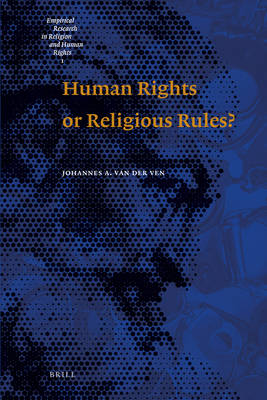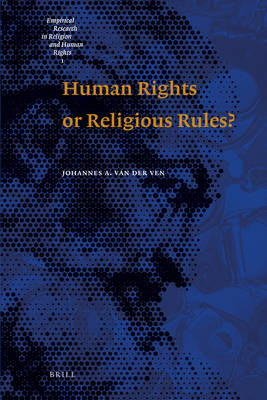
- Afhalen na 1 uur in een winkel met voorraad
- Gratis thuislevering in België vanaf € 30
- Ruim aanbod met 7 miljoen producten
- Afhalen na 1 uur in een winkel met voorraad
- Gratis thuislevering in België vanaf € 30
- Ruim aanbod met 7 miljoen producten
Zoeken
Omschrijving
The relation between religion and human rights is a contested one, as they appear to compete with one another. Religion is often considered to represent a tradition of heteronomy and subordination in premodern times. Human rights emerged from early modern and modern times and stand for principles like human dignity, autonomy, equality. The first question in this book is how to define religion, its meaning, functions and structures, and how to study it. The second question is how to understand religion from its relation with human rights in such a way that justice is done to both religion and human rights. These questions are dealt with using a historical and systematic approach. The third question is what the impact of religion might be on attitudes towards human rights, i.e. human rights culture. For an answer, empirical research is reported among about 1000 students, Christians, Muslims, and nonreligious, at the end of secondary and the beginning of tertiary education in the Netherlands.
Specificaties
Betrokkenen
- Auteur(s):
- Uitgeverij:
Inhoud
- Aantal bladzijden:
- 488
- Taal:
- Engels
- Reeks:
- Reeksnummer:
- nr. 1
Eigenschappen
- Productcode (EAN):
- 9789004183049
- Verschijningsdatum:
- 8/03/2010
- Uitvoering:
- Hardcover
- Formaat:
- Genaaid
- Afmetingen:
- 168 mm x 244 mm
- Gewicht:
- 916 g

Alleen bij Standaard Boekhandel
+ 634 punten op je klantenkaart van Standaard Boekhandel
Beoordelingen
We publiceren alleen reviews die voldoen aan de voorwaarden voor reviews. Bekijk onze voorwaarden voor reviews.








